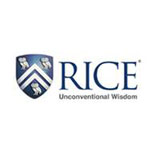
Premature babies struggle to breathe because their lungs are immature. CPAP technology (continuous positive airway pressure) helps keep a child’s lungs inflated and makes it easier for them to breath, but at $6,000 CPAP machines are too expensive for most hospitals in the developing world.
Doctors at Queen Elizabeth Central Hospital (QECH) in Blantyre, Malawi, challenged students from Rice University’s Beyond Traditional Borders program to invent a lower-cost alternative, and the result is a $400 CPAP machine. Based on the success of CPAP in a clinical trial at QECH, Rice professors Rebecca Richards-Kortum and Maria Oden donated their prize money from the 2013 $100,000 Lemelson-MIT Award for Global Innovation to found the Day One Project. Day One aims to create a collection of low-cost, highly effective neonatal technologies like CPAP that a district hospital serving 250,000 could implement for about $5,000.